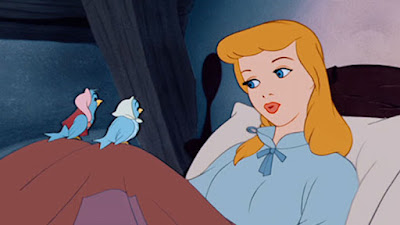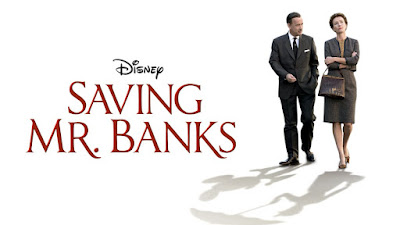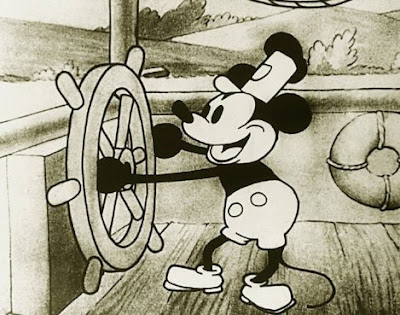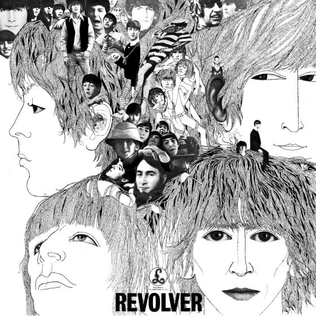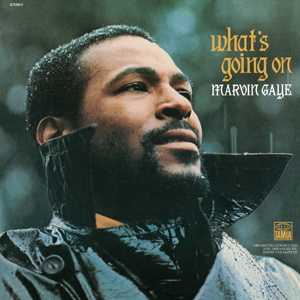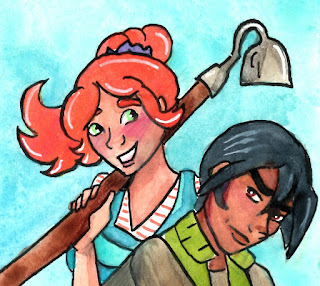When I was a baby writer, starting off in the query trenches, back in 2014, I spent a lot of time reading HOW I GOT MY AGENT blog posts and dreamed about writing my own some day. In my imagination, that was going to be in the not-so-distant future. But as it turns out, querying sucks and I spent far longer trying to get my books into the hands of literary agents than I could have imagined back then. I spent so long, that by the time I got my agent "HOW I GOT MY AGENT" posts were entirely out of fashion and instead, people just posted a quick twitter thread thanking those who helped them along the way when they announced the good news. So I did the same.
And then... something seemed to change?
Recently, I've seen people posting on Twitter about how those threads aren't super helpful and many querying writers wish they did see more HOW I GOT MY AGENT posts, because those tend to include more nuggets of wisdom about how to break into the industry. If nothing else, they give a more complete story of how a person managed to get agented. Was it inside connections? Was it a cold query? Was it the author's first book or not?
So with that in mind, I thought I would talk a bit about how I signed with my agent. Querying in 2022 is agreed to be an absolute nightmare, and I can't make any promises this will be the miracle cure you need if you're currently stuck in the query trenches, but it's my attempt to make this story as helpful as possible. Instead of telling the tale chronologically, I've organized my journey around ten things I found particularly helpful. A lot of them are things the querying writer has probably heard of before. But my experience has shown that they're not all things everyone is using (or not using to their full potential).
Hopefully, at least one of these will give you some ideas. Or at least a better guide for your expectations of what the thing can do for you.
Okay! Onto the list, though to start with, here's the basic data on my query journey, so you have some context for what I'm saying later.
QUICK STATS:
Book that got me rep: DEATH ON THE CALDERA, a 105,000 word Adult Fantasy
Previous books that didn't get me rep: Three - two YA Fantasy novels and one YA Contemporary
Years spent querying: 8.5
Request Rate on DOTC: 30.5%
Number of Offers of Rep: 3
Signed with Agent: May 2022
Now Represented by: Penelope Burns at Gelfman Schneider!
So, as you can see, I was at this for quite a while. So what made the difference? Here are ten things that helped!
10. Publisher's Marketplace
There are a lot of resources out there for querying writers, though it can be hard to know which ones are actually valuable. Publisher's Marketplace is frustrating, because it costs so much, but it was also an undeniably valuable tool. If you can afford the $25, I would recommend getting it for a month when you're starting to query, then possibly again when you're fielding calls and you want to compare the various agents. Many of the agents I queried weren't particularly active on Twitter and other public forums, but they had sales posted to Publisher's Marketplace.
I was switching from querying YA to querying adult fantasy for the first time. I really needed to make sure I had done my research into who was selling what so I didn't send my book off in the wrong direction. I'm glad I spent the money, because the two landscapes are very different to query in. There just aren't as many Sci-Fi/Fantasy presses as there are YA, and that was reflected in the number of agents and sales on Publisher's Marketplace.
PM helped me compile my list, compare offers and feel confident about choosing my agent. That being said, it's in 10th because I think most people can do without it. Get it if you can. Don't lose sleep over it if you can't.
9. QueryTracker
I've had a QueryTracker membership for a few years now and of all the paid resources, this is the one most worth getting. It's a decent return on investment - $25 for a year, last I checked - and it is genuinely SO HELPFUL! I hate spreadsheets and organizing data, but once I logged all my queries into QueryTracker, behold! It did it for me! I had stats! The ability to see myself in the cue of agent's inboxes! It also has some fun features, like the ability to compare against the average QueryTracker user. I don't have huge opinions on what constitutes a good "request rate" when querying. As they say, it only takes one "yes!" But if I was to give a hot take, I would say log your stats on QueryTracker, compare them against other users and aim to be above average. QT stats reflect the most up-to-date state of the query trenches and are going to be better indicators than the opinion of someone who got their agent a few years ago.
QueryTracker also has some cool features like the ability to see what agents have similar taste, so if you get a request from one, you have an idea who else might like your book. It also can help you find more agents who work in your genre. Always check the agent website, though. QT isn't always fully up to date.
8. Naomi Davis's QueryManager Form
When I started querying, every agent wanted email queries and after some fumbling around early on, I got pretty good at writing those. Even my first VERY rough book netted me a few requests, because I was decent at pitching. And then, during the querying of my third book, something terrifying happened. Forms began to take over. QueryManager forms.
I kid you not, for several years I didn't get a single request off a form query, even though my email query rate was holding steady. I am very very very bad at filling out forms. Few things give me more anxiety. I never knew exactly what an agent wanted in each particular section. Then, as I was getting ready to query DOTC, I came across BookEnds literary agent Naomi Davis's form. And it had... instructions?! Like, lots of really thorough, really clear instructions?????
I actually never queried Naomi - they were closed to queries during the time I was submitting, but that FORM! Unfortunately, it's not viewable right now, but when they open back up, I seriously recommend that everyone who is bad at forms go and check that form out. Especially if you are of a certain neurodivergence, like me, where your brain breaks when you're asked to do several discreet tasks rather than one big one. Hurray for executive dysfunction! Naomi gave me clear direction for what went in each box, why they wanted it and what an appropriate answer sounded like. Most of it was the same information I had in my old query letters but I finally knew where to paste it and how to tweak my answers to better align with each category.
Even though I didn't query Naomi, I used their instructions to guide me when filling out other agent's QueryManager forms and BEHOLD! My request rate recovered. So thank you, Naomi! Not every agent who helps you along your journey ends up representing you. Sometimes they just go the extra mile to make it easier for authors to succeed.
7. Twitter and Pitch Events
Since I started querying, I followed along with the various Twitter pitch events. Roughly speaking, there are two types - the blog style pitch events that showcase first pages and are VERY competitive to enter, like Pitch Wars, and the hashtag driven free-for-all pitch events like #pitmad and #sffpit that enable anyone to try to get agent attention. They gave me external deadlines to aim for, the ability to network and make friends with other authors, and in some cases they even netted me agent requests.
And... both of these are dying out. Pitch Wars and Pitmad are both over. None of the other blog contests seem to be around anymore. And as for the hashtag pitch events, there aren't nearly as many agents showing up for them, so requests rates from those are down but gosh darn it... they both helped ME and so in the interest of being honest, here it is.
I was a Pitch Wars mentee. Not for the book that got me rep, mind you, but back in 2017, with my third book. It was a valuable experience that ultimately didn't result in much flashy success. But what it did give me were friends who were as serious about writing as I was. Those people became the backbone of my critique group. In general, I would recommend using any Twitter event you can to meet other writers, especially if you're like me and come from somewhere sparsely populated, where you're unlikely to make real-life writing friends.
As for Pitmad, I used to pitch my old books in that and other hashtag contests for years. Five years ago, those events were easier to get requests in. This year, I think across all the hashtag events, I got two requests total. One from an agent who didn't even like my query. I was ready to write them off as a relic of the past, especially since cold querying was working far better for me. But gosh DARN IT! That other agent like I got? It was from Penelope. And I signed with her. My agent found me in a Twitter pitch party.
I am guessing we're the exception, not the rule. After all, the other offers I got came from cold querying. But am I ever glad I did participate in those contests, because Penelope and I might not have connected otherwise. There aren't a ton of agents (numerically) in those hashtags any more, but some of them (like Penelope) are otherwise closed to queries. So as long as those hashtag pitch parties are around, by all means, participate! Even better, make friends! Statistically, you aren't going to get a ton of likes and you may very well have whole pitch events go by without any agent interaction. That's okay! Doing these events are more about shooting your shot JUST IN CASE.
It's not a reflection on your work if it doesn't pitch well on Twitter. These days, it's not even a reflection on your pitch if it doesn't pitch well on Twitter. There are so many writers trying and so few agents scrolling. But it's worth the few extra minutes to schedule some tweets, so you might as well do it. No shot, no score.
As a caveat, there are some pitch events that are better attended by agents, like #DVpit, and if you qualify for participation in those events, you should definitely participate. As a very white, very straight lady, I do not, so I can't comment on what the numbers are like for #DVpit. My perception is that a few more agents try to turn up for those, since they focus on breaking down barriers to publishing for marginalized creators. Still, if you're participating in one of those and you aren't getting a ton of love, remember: it's not you or your book or even your pitch! There are so many other voices competing in these things. Just assume none of the agents saw you and query them anyway.
I hope something like Pitch Wars and #Pitmad sticks around on Twitter. It feels like Twitter writer culture is in a bit of a transition. Some of the old stand-byes are fading away and we aren't quite sure what is going to rise up in its place. But using contests as a means of establishing deadlines, making friends and connecting with industry professionals is still a great idea.
6. Casting a Wide Net and Being Patient
Here, I'm going to talk query strategy. I did all the basics - queried in batches, revised between batches when I wasn't seeing the success I wanted to, wrote a new book while in the trenches etc. If you want a thorough breakdown of the batch querying technique, I think this Alexa Donne video is very helpful, though I want to throw in a few caveats to what she says. In fact, those caveats will be most of this section.
First, there are a lot of people who insist you need a crazy high request rate in order to be successful. This just isn't true. Alexa made her video a few years ago and most people agree that request rates have stagnated somewhat. Also, she's focused on the YA market which - when she broke in - was absolutely hopping. So while I recommend using her strategy, I would say aim for a request rate between 10-20% and you'll be doing GREAT. Especially if you're in a lower requesting category, like Adult or Middle Grade. If you want a better idea of what query request rates look like for agented authors, check out these charts compiled by M.V. Pine who polled a bunch of recently represented authors. This was what I looked at when I was trying to gauge my progress this past year.
Second, once you are getting requests, QUERY EVERYONE! One of the other reasons Alexa's stats are so high is - if you listen carefully - because of how targeted her list is. Good sirs and madams and gentlepeople, I did not target my list. No, I queried the crap out of everyone. So long as they sold in my category or were getting trained at an agency with good Sci-fi/Fantasy sales, they got a letter from me. This almost certainly lowered my stats over all, but I didn't care. I knew some of these were long shots, since their lists were so full. Others I just wasn't sure if the agent would vibe with my work, but I tried anyway. The handful of requests I got off these were totally worth it. You're not here to get a perfect request rate. You're here to get an agent. Give everyone the chance to rep you.
I also never bothered personalizing a query unless I had something of substance to say. It just ain't worth the time. If this was an agent who requested a previous book and went back and forth with me for a while talking about it then sure, I mentioned that. But don't break your back trying to come up with personalizations that in the end amount to "I saw this in your MSWL" or some variant. I made this change because I realized it was taking me HOURS to send a single query and doing that work had almost no impact on the request rate. Obviously you should change out the agent's name with each query, but copy and paste, my friends! Get the job done quick so you can get a batch of queries off in an afternoon.
Then comes the hard part. Patience. I know the slow response times suck, but they're an unfortunate part of the process. Also, there seems to be an idea that this is a recent change. It's actually been my experience that an agent taking over a year on a full is normal. Very normal. And yes, there are agents who might take a year to answer queries. This isn't as common, but it is, again, normal. It's been going on since I first started querying and will likely be the case long into the future. If something happens in the writing world that manages to shake these things up and improve conditions for writers, I will be among the first to celebrate it. But until that day, I want to make sure people know that it's not crazy to be patient and wait on a query for a year. It sucks, but it's normal. Querying sucking is normal.
With that, if you DO get an offer of rep, notify everyone, including those queries you were considering closing as non-responders. If you've barely passed the date where they say "if it's silence, it's a no," and you haven't heard anything, follow up, just in case they're a few weeks behind. If their website doesn't explicitly state they're a closed-no-response agent, follow up with a nudge. I got a lot of passes that way, but I also got some requests. Better safe than sorry. Querying takes a long time, and you don't want to cut someone out prematurely.
5. Studying the Craft
So it turns out if you want to write a book you should... um... learn how?
When I started querying, I was finishing up my MFA in Creative Writing and I really hoped this would give me an edge. Not so much from a clout perspective (agents really don't care if you have an MFA) but I hoped it meant that I knew what I was doing. I knew writing! I had letters next to my name to prove it!
And I'm not saying my MFA didn't help - I learned a lot in school - but it also DID NOT teach me everything I needed to know about writing. Particularly, it didn't teach me everything I needed to know about myself as a writer. So gradually, I made myself study more and more.
I went to writing conferences. I listened to almost the whole back catalogue of Writing Excuses episodes. I watched multiple versions of Brandon Sanderson's Writing Sci-Fi and Fantasy class. I bought craft books and read Save the Cat Writes a Novel and learned how to make a beat sheet and then ignored that outline like the pantser I am. The resources you need are going to be specific to you. I can't guess at what particular thing you need to study in order to improve but all of us do need to. In general, I would recommend everyone listen to seasons 10 and 11 of Writing Excuses at some point and if you're focused in Sci-Fi and Fantasy, you should watch Brandon's class. They're free and they're incredibly valuable.
Regardless, it's always a good idea to learn more. Even on my first book, I was getting requests. Some of what I was doing was working, but not enough. I needed to learn more and improve my craft before I could break through, even though I felt SO CLOSE with all three of my previous books. And this all still holds true. I still have so many things I need to learn how to do. One of the reasons I've focused less on craft in this post and more on query strategy is because frankly, I don't feel bold enough to say DO THIS AND YOUR BOOK WILL BE GOOD ENOUGH about anything. And yet, that's the ultimate thing that will get you the agent/book deal/etc. Refining your craft until your work is good enough and the stars align with just enough luck to get your foot through the door.
4. A New Set of Eyes
When I started writing Death on the Caldera, I really felt like this book was the one. I was excited to query it. My first pages had recently won a prize in a first chapter contest and people loved my pitch. It was gonna do great in the query trenches and nab me dozens of requests! Right?
RIGHT???
Lol, nope. When I first started, I had no bites and I was honestly confused. I was brazenly confident about my book and had been SO CLOSE with book #3 before it. My critique group loved my novel. So what was going wrong?
Well, I luckily had a friend and mentor who agreed to read the first 75 pages of the manuscript and her comments helped me realize something. None of what I had written was BAD, per say, but the scene I had chosen to begin with didn't set up the book as well as I had hoped. I wasn't giving agents the right set of expectations for what came next. Both my query and first pages were decent, but they didn't match.
So I cut that prize winning chapter and rewrote the entire beginning of the book and with it, a lot of the rest of the manuscript. And THAT version was the one that got me interest.
Obviously not everyone is going to have the same set of problems when they start to query, but I learned a valuable lesson about outside perspective. My critique group was just too close to the manuscript at that point and like me, couldn't see exactly what wasn't working anymore. My mentor could. Before you query, I would highly recommend putting your work in front of someone you really trust who hasn't seen it before, so that they can spot what you and those you are closest to are blind to. It might save you some stress and tears.
3. Critique Group
I can't say enough good things about my critique group. It can take a lot of time to curate a group and get people who are committed and show up reliably, but once you have it, wow. It's the best. I really believe that critique partners are the one universal behind every great author. Learning to take feedback and integrate it into your writing is the work of a lifetime (still learning!) but it's so worth it.
For anyone looking for a critique group and struggling to find reliable people, man, I get it. If possible, I think you should try to get a group that meets at least bi-weekly, either in person or online. Mine is online and we just start a group chat on Messenger and read pages together once a week. It's the best. I was in several before this one took off and it took years before I got the exact fit I wanted.
If you don't have a great group yet, just keep meeting people and swapping pages and talking things out until hopefully, you find a group that fits. Talk to your fellow writers. Mention how you would love to find a great critique group. Someone might have a lead. Our group started two years ago, but some of the people who have helped me the most joined after we first founded. They came in because they asked around and heard from our group members that we had something going on they could join.
2. Rewriting the Book
I mentioned the rewrite I did under section four, but here I want to talk more generally about editing. While writing a new book is an important part of growing as a writer and giving yourself the best chance possible while querying, learning how to edit also matters a LOT.
If the book isn't working, try rewriting it AT LEAST once before giving up on it. Often I hear authors ask how they'll know if something is query ready and my experience is this: you do the best you can, send it out, then discover it wasn't good enough, and rewrite it.
With all of my books (except one), I did at least one major revision before abandoning them in the query trenches. In every case, my request rate went up after the revision. The only book where I didn't, it was because I could tell the book needed a revision, I just didn't have a good sense of what the rewrite would look like, so I moved on to the next book.
Obviously, you try to rewrite your book to the best of your ability before ever sending it out, but don't be afraid to go back and rewrite if things aren't going well. Get some outside eyes on it (as mentioned in point 4) and then try to rework it into something stronger.
My third book actually netted me two different Revise and Resubmit requests. These taught me a lot about revision and in some ways, I felt like I finally knew how to assign myself an R&R when I went back to rewrite Death on the Caldera. Revision is a learned skill and even if your book does still die in the query trenches, like my earlier ones did, I'm glad I spent the time learning how to revise so that I could successfully do it later.
1. Writing Another Book
So say you've queried that book, sent it out, revised it, sent it out again and it's STILL not working out for you? Well, perchance, the time has come. Time to write another book. Ideally, you've been drafting it already while the last book was in the query trenches, so the transition isn't too much of a shock. But there still seems to be a point where we have to make a conscious choice to let one project die and focus on another.
Generally, I would say try to get to 100 or so queries before letting a project die. Though I'll be honest, some genres there might not be 100 agents to query, especially if you query agencies that are one-and-done. But at LEAST 50 then. Don't give up too soon.
One of the stickiest decisions I had to make in my own query journey came in late 2020 when an agent offered me a Revise and Resubmit opportunity with my previous novel, the YA Contemporary. This had been my Pitch Wars novel and it was - without question - the best book I had ever written.
So far.
The thing was, I was halfway through my draft of Death on the Caldera, which I was way more excited about, plus it was a completely different type of book. An agent who loved my YA Contemporary might not want me to give them an Adult Fantasy next. I waffled for several weeks about which one to focus on until, in the end, the new book won out. Sure, I could make the old book better by revising it again, but I knew I had a different, BETTER book on my hands if I could just finish it. I felt a little crazy letting the old book die before it was truly dead, but I had already been around the R&R block with that manuscript once before and I knew this opportunity could also result in another "no."
In addition to writing, I also love to paint, and when using watercolor, there's always a risk of going over the same section too many times until it looks overworked. That can happen in writing too. We can stall out on the same project for too long, when it might be more helpful to move on to something new.
In the end, I really do believe that the best decision I made for my writing career was to keep writing new books. I could incorporate the new things I was learning until eventually, I had a better book. I've loved all my projects, but it really is okay to let one go and allow yourself to fall in love with something new. It might just be the book you really needed.
So. There you go. That's the list. It's too long. I'm sorry, brevity was never my strong suit (which is why I needed to learn to edit). But those are the things that helped me. I hope they help you. And I hope you publish a million books.
